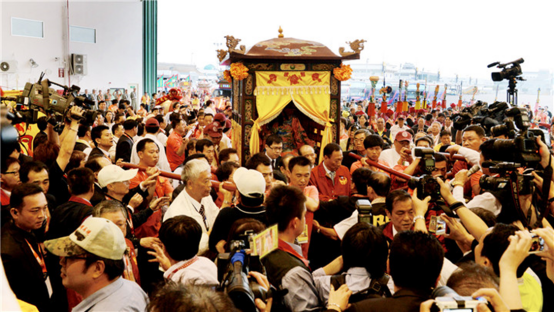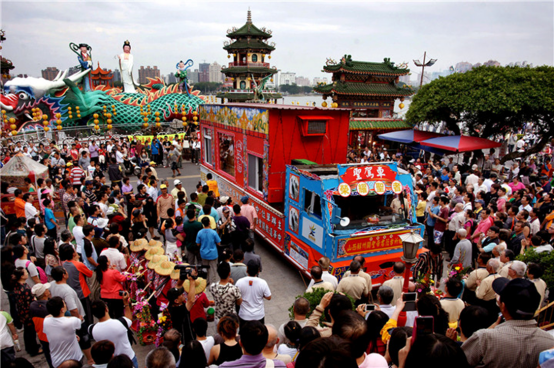

Guan Gong (Guandi) belief and custom in customs is a social practice, ritual and festival activity with the core content of worship of the spiritual character of "loyalty, benevolence, righteousness and courage" of Guan Yu (160-220), a Chinese martial saint.
Guan Yu, honored as the "saint of martial arts" for his bravery and good fighting skills, is as famous as Confucius---the "saint of literature". He exerts a profound influence on Chinese traditional culture. In the long process of historical development, he has been gradually mythologized as an omnipotent god integrating war god, exorcism god, protective god, and the god of war, whose believers include people of all social strata and most of the related groups of industry.
In Yuncheng area, Guan Gong belief and custom are in the form of temple sacrifice, family sacrifice, temporary sacrifice, industry and hall sacrifice. For example, three large-scale ceremonies are held each year on the 24th day of the 6th lunar month, the birthday of Guan Gong, the eighth day of the 4th lunar month, the Buddha's Birthday, and the Double Ninth Festival on the 9th lunar month. On the eighth day of the fourth month of the lunar calendar, a series of worship ceremonies are held at the Temple of Guandi in Haizhou. After the ceremony, the statue of Guan Gong is carried out from the temple and toured the whole town of Haizhou to bless the people. On the 24th day of the sixth month of the lunar calendar, people in the community gather at the family temple in Changping Village to worship three generations of Guan Gong's ancestors and invite a troupe to perform Guan Gong's opera. On the ninth day of the ninth lunar month, the biggest sacrificial activities with the largest scale and number of participants are held in Guandi Temple, following the traditional etiquette and rules, such as striking drum, welcoming gods, preliminary offering, offering jade and silk, burning incense, setting ritual vessels, second libation, reading blessings, final libation, drinking blessing liquor, sending god away, watching burning, performances, ritual completion and offering alms-giving, and a variety of folk art forms, such as Guan Gong gong and drum, Guan Gong opera performances, are accompanied by the ceremony for nearly three hours. Guan Gong's belief in customs is one of the most representative forms of Chinese folk belief culture and plays an important role in the continuity of Chinese cultural tradition.

